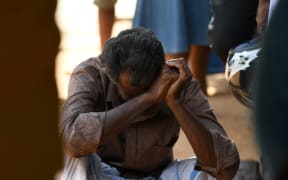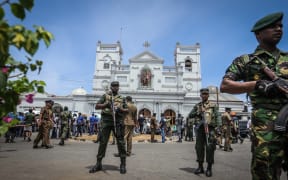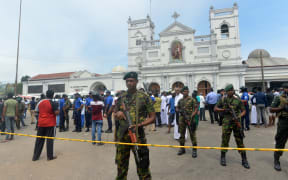Sri Lanka has invoked emergency powers after bomb attacks on hotels and churches killing 290 people and wounding nearly 500, in Easter Sunday attacks blamed on militants with foreign links.
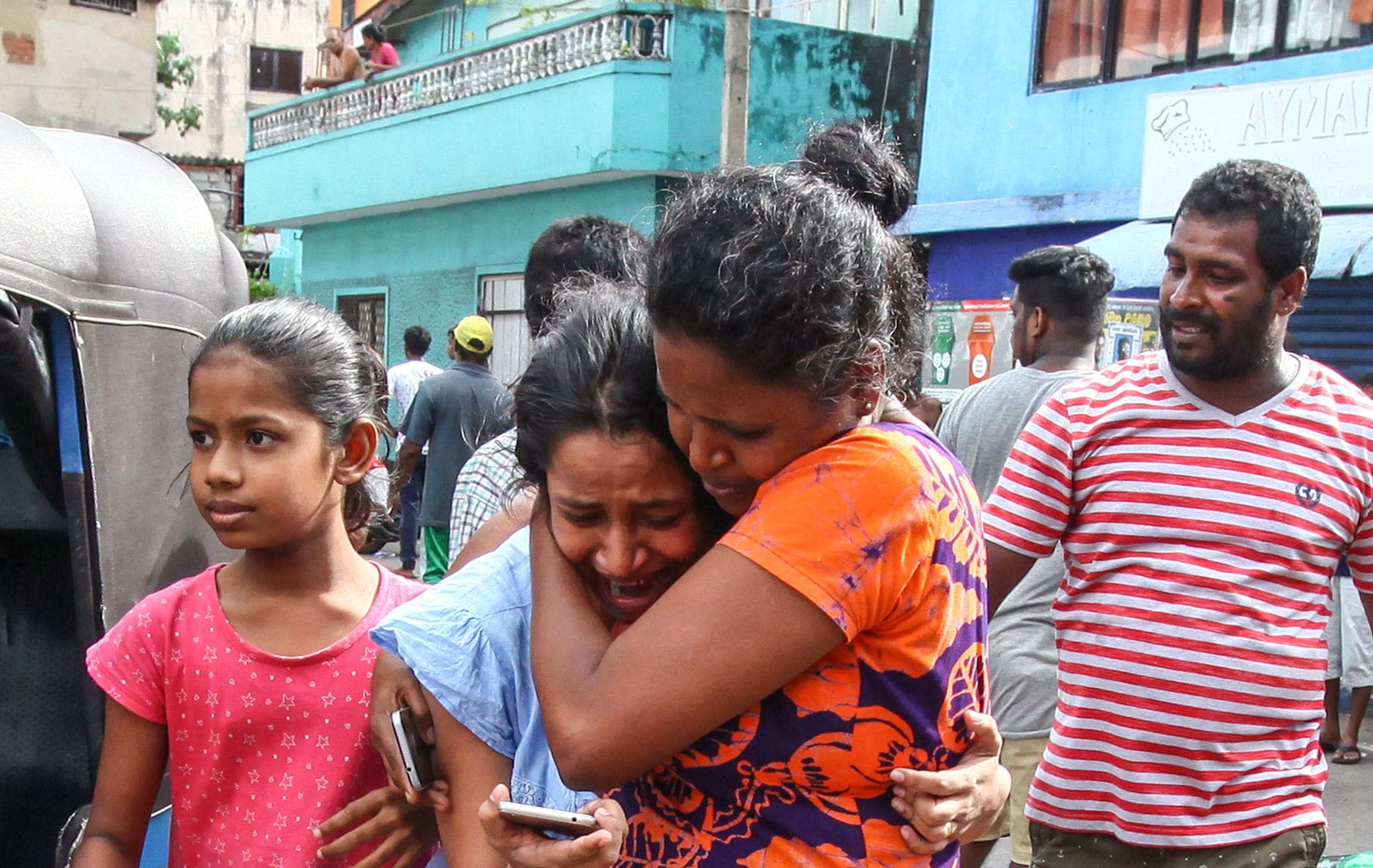
Sri Lankans living near St. Anthony's shrine run for safety after police found explosive devices in a van in Colombo, Sri Lanka on April 22, 2019. Photo: AFP
The emergency law, which gives police and the military extensive powers to detain and interrogate suspects without court orders, would go into effect at midnight local time, the president's office said.
Colombo, the seaside capital of the island in the Indian Ocean, was jittery the day after the horrifying Easter Sunday attacks.
Two of the suicide bombers blew themselves up at the Shangri-La Hotel on Colombo's seafront, said Ariyananda Welianga, an official at the government's forensic division. The others targeted three churches and two other hotels.
A fourth hotel and a house in a suburb of the capital Colombo were also hit, but it was not immediately clear how those attacks were carried out.
Read more:
- Foreign network helped Sri Lankan bombers - govt
- Vigil, letter of support from NZ
- NZ woman fears for friends after Sri Lanka blasts
- Sri Lanka blasts: Arrests, police dead in raids
Traffic was uncharacteristically thin in normally bustling Colombo on Monday. Soldiers with automatic weapons stood guard outside major hotels and the World Trade Centre in the business district.
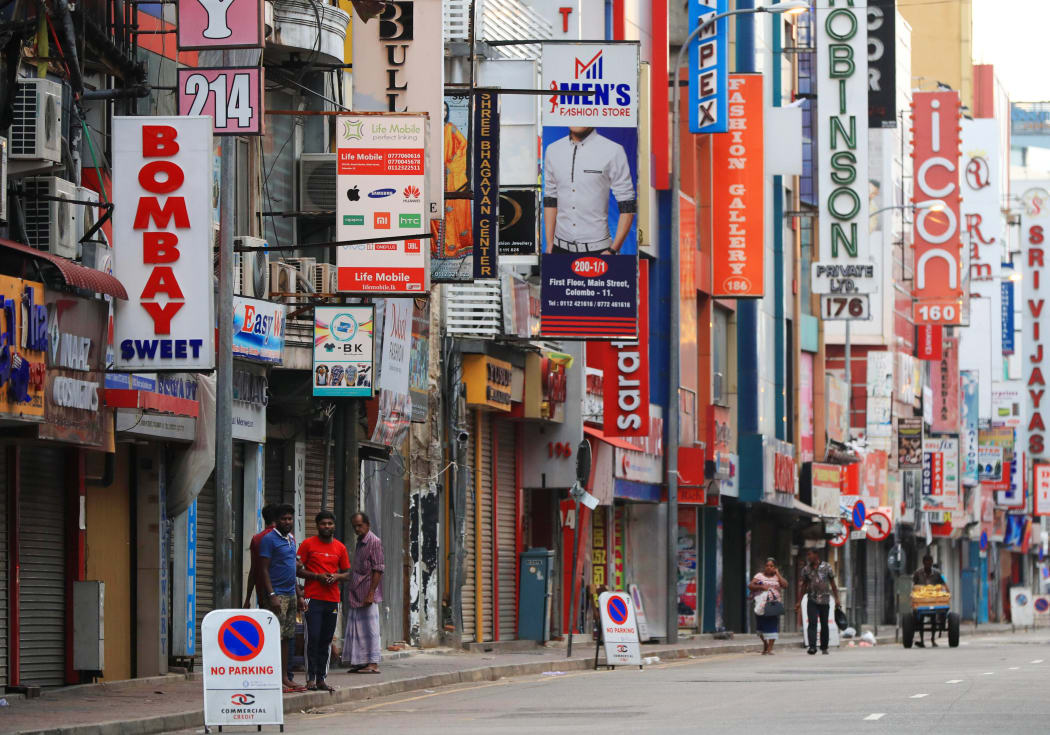
Nearly all shops are closed on a local shopping street in Colombo on Monday, a day after the attacks. Photo: AFP / The Yomiuri Shimbun
Police said 87 bomb detonators were found at the city's main bus station, while an explosive went off near a church when bomb squad officials were trying to defuse it. Scores were killed in the church on Sunday.
A night curfew went into effect at 8pm for the second night.
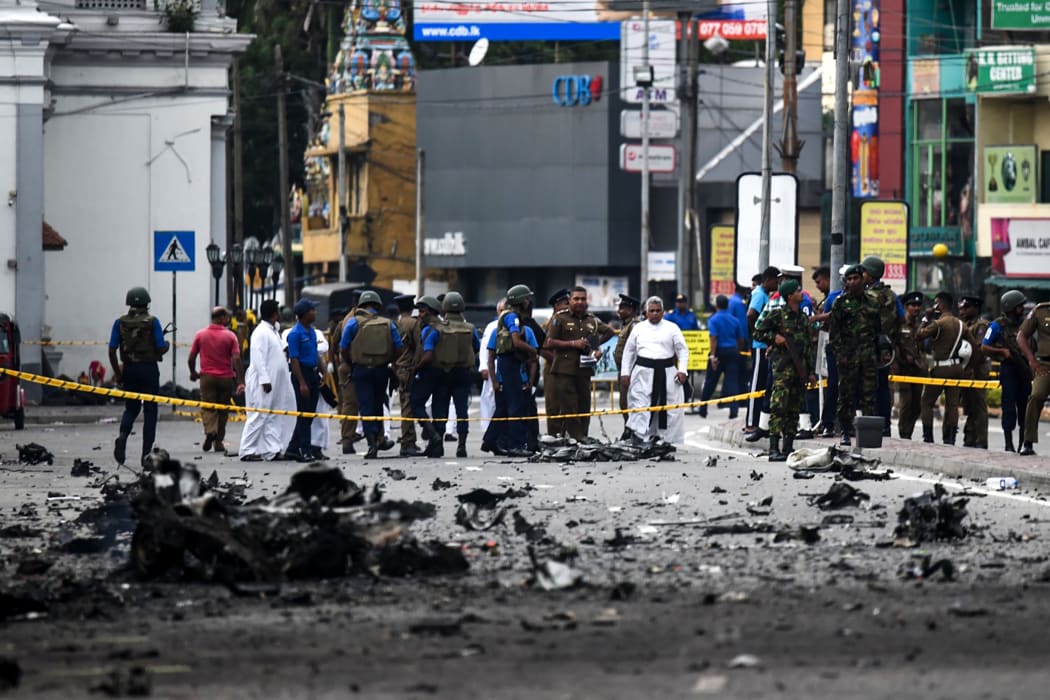
The debris of a car bomb that went off near St Anthony's shrine while police were trying to defuse it, a day after the initial attacks. Photo: Jewel SAMAD / AFP
An Australian survivor identified as "Sam" told Australian media the hotel was a scene of "absolute carnage". He said he and a travel partner were having breakfast at the Shangri-La when two blasts went off.
He said he had seen two men wearing backpacks seconds before the blasts.
"There were people screaming and dead bodies all around," he said. "Kids crying, kids on the ground, I don't know if they were dead or not."
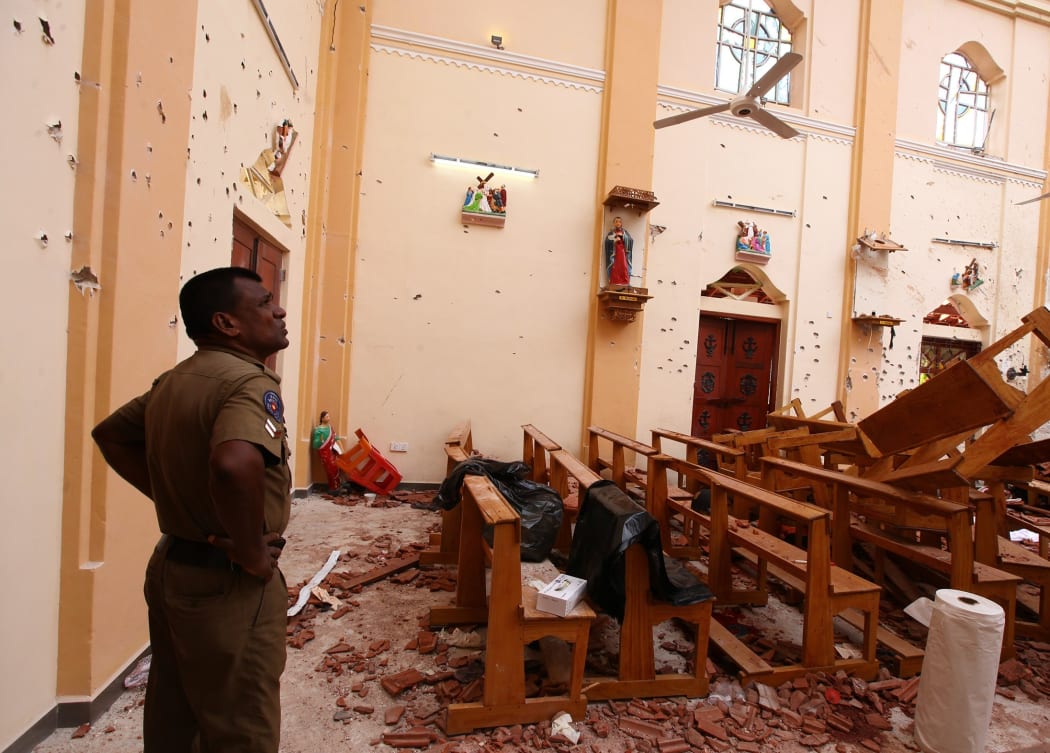
Officials inspect the damaged St. Sebastian's Church after the attacks. Photo: AFP / Chamila Karunarathne / Anadolu Agency
There were similar scenes at two churches in or near Colombo, and a third church in the northeast town of Batticaloa, where worshippers had gathered. Pictures showed bodies on the ground and blood-spattered pews and statues.
Dozens were killed in a blast at the Gothic-style St Sebastian church in Katuwapitiya, north of Colombo. Police said they suspected it was a suicide attack.
Most of the attacks came during Easter services and when hotel guests were sitting down for breakfast buffets.
"Guests who had come for breakfast were lying on the floor, blood all over," an employee at Kingsbury Hotel told Reuters.
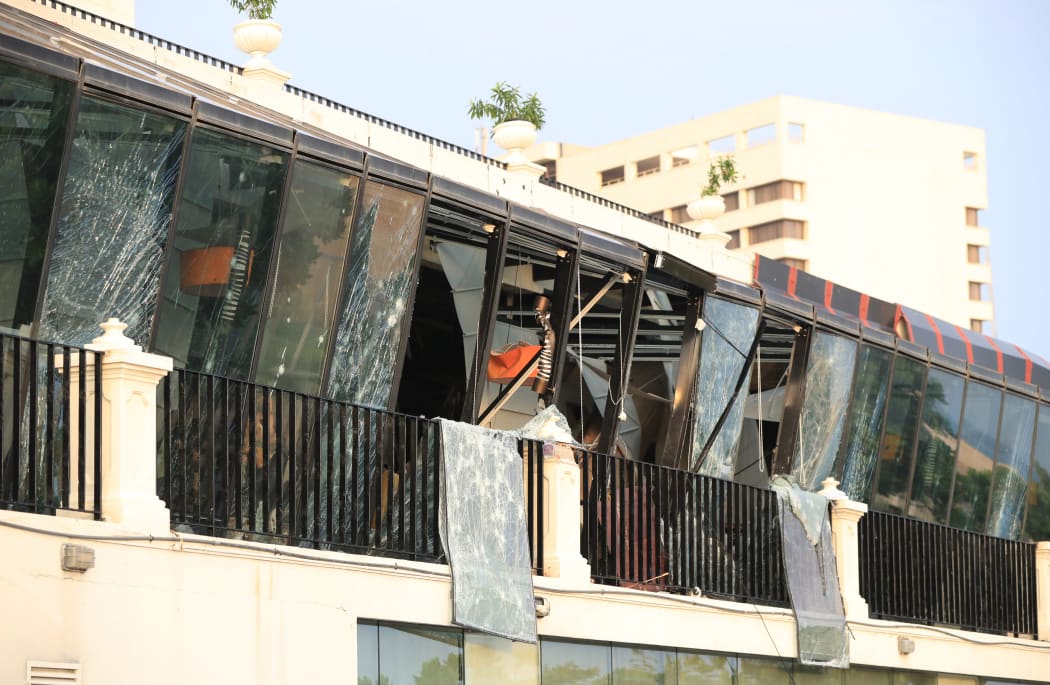
The Kingsbury Hotel in Colombo City. Photo: AFP / The Yomiuri Shimbun
There has been no claim of responsibility for Sunday's attacks but suspicion has focused on Islamist militants in the Buddhist-majority country.
Police said 24 people had been arrested, all Sri Lankan, but they gave no more details.
Investigators said seven suicide bombers took part in the attacks, while a government spokesman said an international network was involved.
International anti-terrorism experts said even if a local group had carried out the attacks, it was likely that al Qaeda or Islamic State were involved, given the level of sophistication.
Questions over why the intelligence report warning was not acted upon could feed into a feud between Prime Minister Wickremesinghe and the president.
Police had received a tip-off of a possible attack on churches by a little-known domestic Islamist group this month, according to a document seen by Reuters.
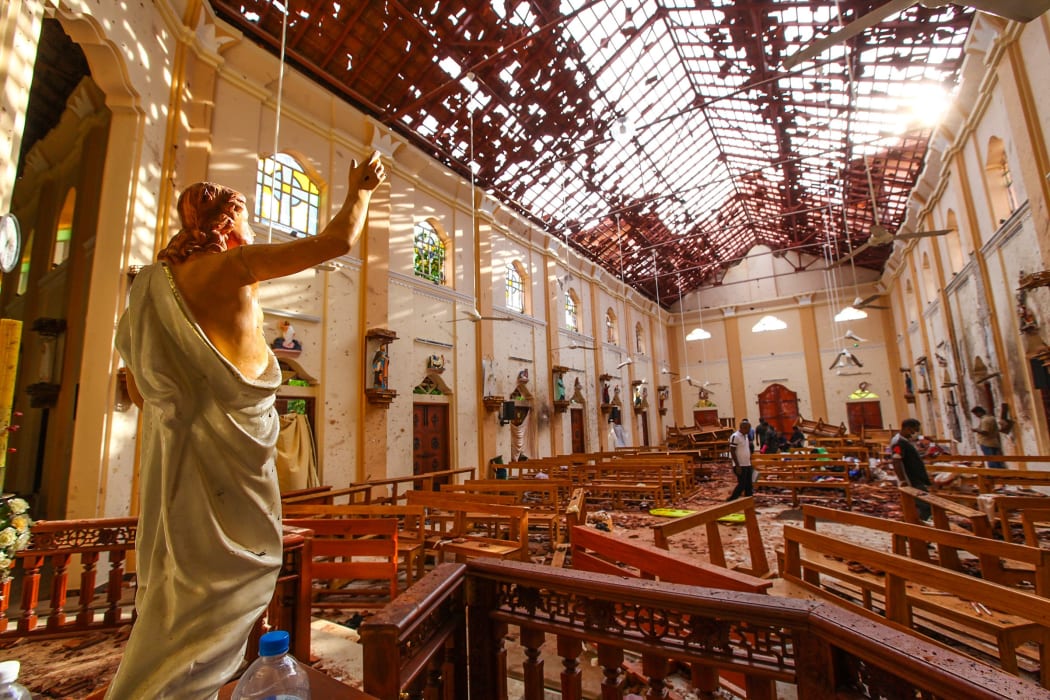
Damage at St Sebastian's Church. Photo: AFP / Chamila Karunarathne / Anadolu Agency
The intelligence report, dated 11 April, said a foreign intelligence agency had warned authorities of possible attacks on churches by the National Thawheed Jama'ut. It was not immediately clear what action, if any, was taken in response to the tip-off.
Sri Lanka presiden Maithripala Sirisena fired the premier Ranil Wickremesinghe last year and installed opposition strongman Mahinda Rajapaksa in his stead. Weeks later, he was forced to re-instate Mr Wickremesinghe because of pressure from the Supreme Court but their relationship is still fraught as a presidential election nears.
Buddhist-majority Sri Lanka was at war for decades with ethnic minority Tamil separatists, most of them Hindu, but violence had largely ended since the government victory in the civil war 10 years ago. The country's 22 million people include minority Christians, Muslims and Hindus.
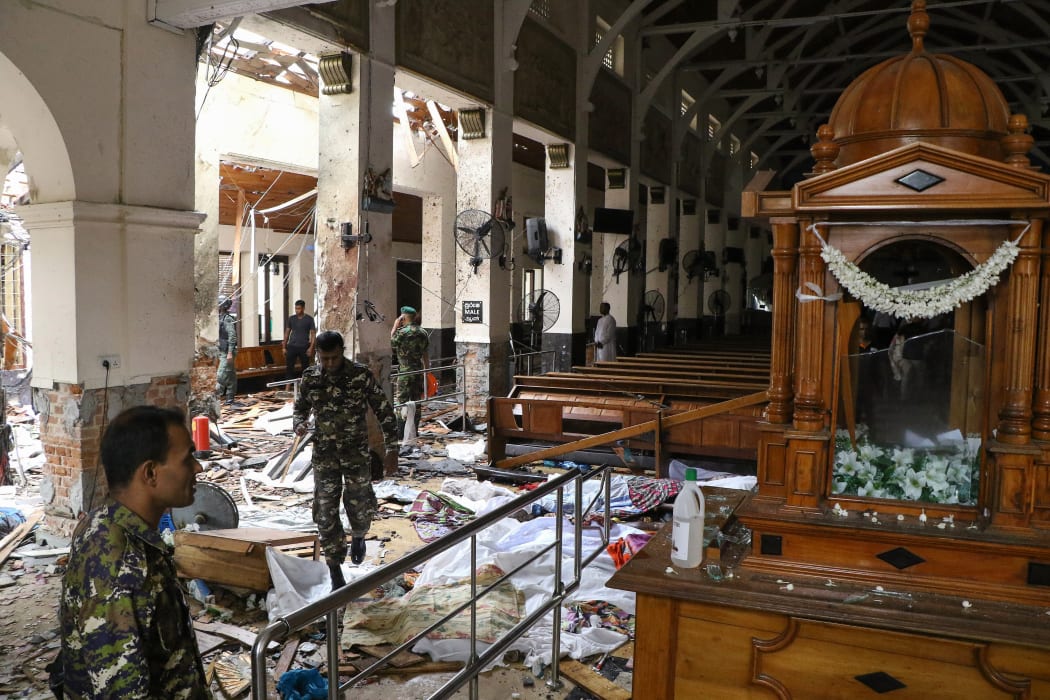
Security personnel walk past bodies covered with blankets amid blast debris at St. Anthony's Shrine. Photo: AFP / ISHARA S KODIKARA
Most of the dead and wounded were Sri Lankans although government officials said 32 foreigners were killed, including British, U.S., Australian, Turkish, Indian, Chinese, Danish, Dutch and Portuguese nationals.
Denmark's richest man Anders Holch Povlsen and his wife lost three of their four children in the attacks, a spokesman for his fashion firm said.
A British mother and son were killed while eating breakfast at the Shangri-La, British media reported, while five Indian political workers were killed at the same hotel.
The US State Department said in a travel advisory "terrorist groups" were plotting possible attacks in Sri Lanka and targets could include tourist spots, transport hubs, shopping malls, hotels, places of worship and airports.
New Zealand's Ministry of Foreign Affairs and Trade said more than 200 New Zealanders were registered as being in Sri Lanka, but nothing at this stage suggested any of them had been caught up in the bombings.
- Reuters
